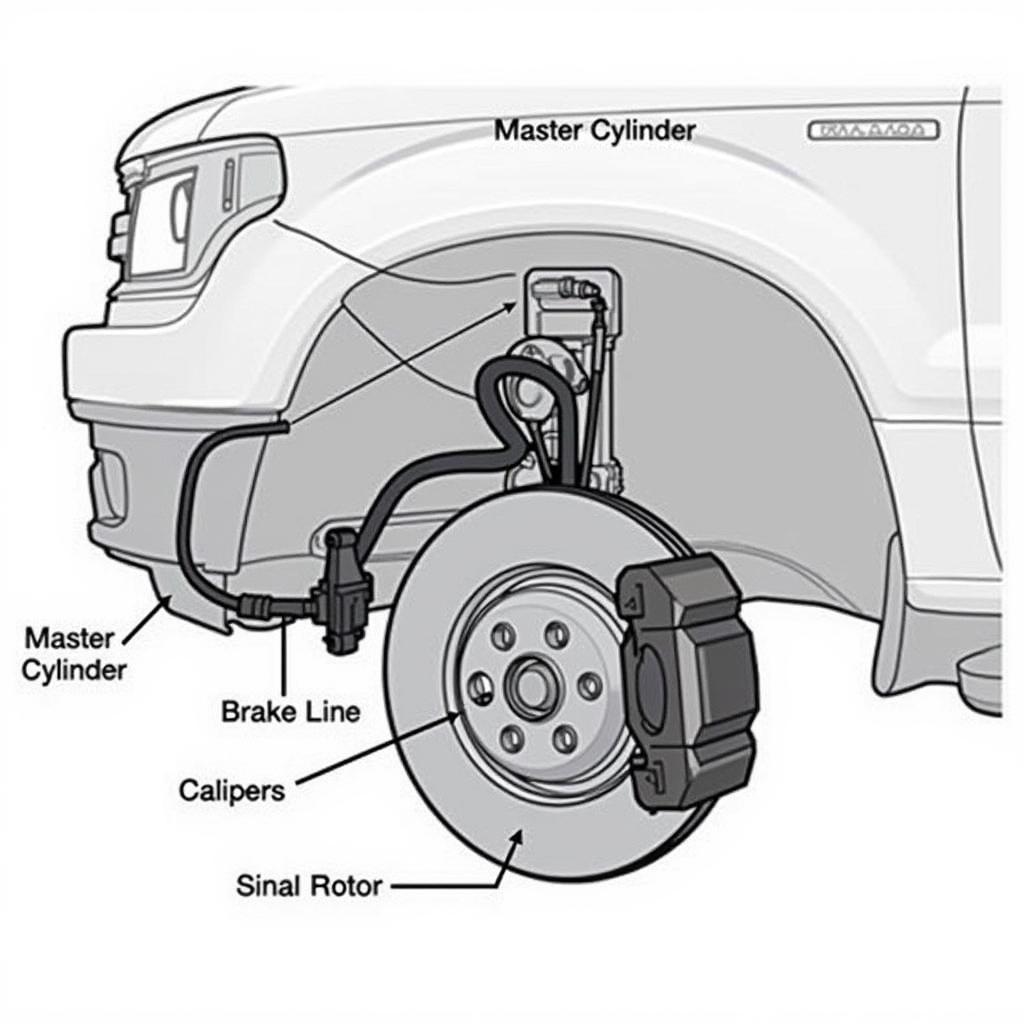A car battery overheat can be a serious issue, potentially leading to damage and even explosions. Understanding why your car battery is overheating is crucial for preventing further problems. This article will explore the common causes, offer effective solutions, and provide preventative measures to keep your car battery running cool.
Overheating occurs when a battery generates more heat than it can dissipate. This can stem from various internal and external factors, ranging from a faulty alternator to extreme weather conditions. Identifying the root cause is the first step in addressing the problem.
Why is My Car Battery Overheating?
Several factors can contribute to a car battery overheat. One common culprit is overcharging. When the alternator, responsible for charging the battery, malfunctions and continuously sends excessive voltage to the battery, it can lead to overheating. Another potential issue is a faulty voltage regulator, a component designed to maintain a stable voltage. If the voltage regulator fails, it can also cause overcharging and subsequently, overheating. Excessive ambient temperatures, especially during summer, can also contribute to the problem. A hot environment makes it harder for the battery to dissipate heat, exacerbating any existing issues. Similarly, internal shorts within the battery itself can generate excessive heat.
If you suspect your car is overheating after replacing the battery, it’s important to diagnose the problem thoroughly. car overheating after replacing battery offers helpful insights into this specific scenario.
Recognizing the Signs of an Overheating Car Battery
Recognizing the signs of an overheating car battery is crucial for taking timely action. A distinct rotten egg smell emanating from the battery is a strong indicator of overheating. You might also notice physical changes to the battery case, such as bulging or cracking. Corrosion around the terminals is another telltale sign. In some cases, the battery might even leak acid, which is a clear indication of a serious problem.
What to Do if Your Car Battery Overheats
If you encounter an overheating car battery, immediate action is necessary. First, turn off your vehicle and allow the battery to cool down completely. Never attempt to jump-start or charge a hot battery, as this could lead to an explosion. Once the battery has cooled, you can begin troubleshooting. Check the alternator and voltage regulator for any malfunctions. If you suspect a problem with either component, it’s best to seek professional help.
Troubleshooting Car Battery Overheating Issues
Troubleshooting a car battery overheat involves systematically checking potential causes. Start by inspecting the alternator’s output. If the alternator is overcharging, it needs to be replaced. Similarly, test the voltage regulator and replace it if necessary. Check the battery for internal damage or shorts. If the battery is damaged, replacement is the only option.
It’s important to differentiate between a failing starter and a dead battery. bad starter vs dead battery provides valuable information to help you distinguish between these two issues.
Preventing Car Battery Overheat
Preventing car battery overheat is always better than dealing with the consequences. Regular maintenance is key. Ensure your battery terminals are clean and free of corrosion. Have your charging system inspected periodically by a qualified mechanic. This includes checking the alternator, voltage regulator, and battery condition. During extremely hot weather, consider parking your car in a shaded area to minimize heat exposure. Additionally, be mindful of electrical loads on your battery, especially when the engine is off.
“Regular maintenance is the key to preventing most battery issues, including overheating,” says John Miller, a seasoned automotive technician with over 20 years of experience. “Simple steps like keeping the terminals clean and having your charging system checked can significantly extend the life of your battery and prevent costly repairs.”
Another potential issue that could lead to battery problems is a failing alternator. signs your car needs a new alternator offers a comprehensive guide to recognizing the symptoms of a bad alternator.
For hybrid vehicle owners, battery overheating can be a specific concern. prius battery overheating provides detailed information on this topic.
Additionally, if you own a Tesla Model 3, understanding low voltage battery warnings is essential. tesla model 3 low voltage battery warning provides a valuable resource for this specific issue.
“Overlooking a seemingly minor issue like corroded terminals can eventually lead to more serious problems, including overheating,” adds Sarah Thompson, a certified electrical systems specialist. “Prevention is always the best approach.”
Conclusion
Car battery overheat is a serious issue that demands attention. By understanding the causes, solutions, and preventative measures outlined in this article, you can protect your car battery, prevent potential damage, and ensure a safer and more reliable driving experience. Remember that regular maintenance and prompt attention to any warning signs are crucial for keeping your car battery in optimal condition and preventing overheating.

